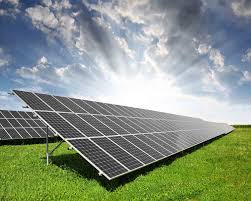Solar energy is becoming the go-to choice for homeowners and businesses seeking reliable and cost-effective power solutions in Pakistan. With increasing electricity prices, frequent load shedding, and the global shift toward cleaner energy, solar has emerged as a practical alternative. If you’re just beginning your solar journey, choosing the right system can be overwhelming. With numerous solar companies in Lahore offering a variety of solutions, it’s essential to understand your specific energy needs before making a decision.
The right solar solution will depend on several factors including your location, energy consumption, budget, and long-term goals. This guide is designed to help beginners navigate key considerations and features when choosing a solar energy system, ensuring you make an informed, future-ready investment.
Understanding the Basics of Solar Energy
Before diving into system options and providers, it’s important to understand how solar energy works. Solar panels absorb sunlight and convert it into electricity through photovoltaic (PV) cells. This direct current (DC) is then converted into alternating current (AC) by an inverter, making it usable for home and business appliances.
Core Components of a Solar Power System
- Solar Panels: Capture sunlight and generate DC electricity
- Inverter: Converts DC into AC for consumption
- Battery (optional): Stores excess energy for later use
- Mounting Structure: Holds panels securely on rooftops or the ground
- Monitoring System: Tracks energy production and usage in real-time
Each of these components can vary in size, quality, and features, depending on your energy requirements.
Identifying Your Energy Needs
One of the first steps in choosing the right solar solution is determining your current and projected energy consumption. This helps in selecting a system that can effectively cover your needs without over- or under-investing.
How to Assess Energy Usage
- Review your last 6–12 months of electricity bills
- Identify your average daily and monthly kilowatt-hour (kWh) usage
- Consider peak usage times and seasonal variations
- List high-consumption appliances (e.g., air conditioners, heaters, pumps)
- Factor in any planned additions (EVs, new appliances, home extensions)
A system that aligns with your consumption profile will offer optimal efficiency and cost-effectiveness.
Types of Solar Systems Available
There are three primary types of solar energy systems to choose from, depending on your usage and grid accessibility. Understanding each can help you select the best option.
On-Grid Solar System
- Connected to the national electricity grid
- No batteries required
- Ideal for areas with stable grid supply
- Excess energy can be sent back to the grid via net metering
- More affordable due to fewer components
Off-Grid Solar System
- Fully independent from the grid
- Requires battery storage
- Best for rural or remote areas with no grid access
- Offers full energy autonomy
- Higher upfront costs due to battery and backup generator options
Hybrid Solar System
- Combines on-grid and off-grid features
- Uses both grid and battery backup
- Offers flexibility and reliability
- Ideal for locations with inconsistent electricity supply
- Higher initial cost but greater long-term value
Choosing the right system depends on your location, reliability of the local grid, and your lifestyle preferences.
Evaluating Site Suitability
Solar performance depends greatly on physical site conditions. A good installation site maximizes sun exposure and minimizes shading and obstructions.
Site Assessment Factors
- Roof orientation and tilt angle
- Available roof space or ground area
- Structural integrity of the mounting surface
- Presence of trees, poles, or other structures that cast shadows
- Local weather patterns and dust levels
Professional solar providers typically conduct a detailed site survey to determine system feasibility and layout.
Calculating System Size
System size determines how much electricity your solar installation can generate. It’s measured in kilowatts (kW) and directly impacts the cost and performance of your system.
Key Considerations
- Average daily energy usage (in kWh)
- Hours of sunlight your area receives per day
- Panel efficiency and inverter capacity
- Net metering eligibility and export potential
- Space available for solar panel installation
An accurately sized system ensures that you generate sufficient energy without unnecessary expenses.
Selecting Quality Equipment
Not all solar panels or inverters are created equal. The quality of your equipment will influence efficiency, durability, and maintenance frequency.
What to Look For
- Tier-1 solar panels from certified manufacturers
- Inverters with strong warranties (5–10 years minimum)
- Battery storage with long cycle life and low maintenance
- Anti-corrosion mounting structures
- Weatherproof cabling and protection systems
Investing in quality equipment may cost more upfront but ensures better performance and fewer issues in the long run.
Understanding Net Metering Benefits
Net metering allows you to feed excess solar electricity back to the grid and receive credits against your consumption. This significantly improves return on investment for on-grid systems.
Benefits of Net Metering
- Reduce electricity bills by offsetting grid usage
- Earn credits for surplus electricity exported
- Monitor and manage energy usage more effectively
- Promote efficient system sizing and consumption habits
- Faster payback periods and greater lifetime savings
Not all providers offer net metering services, so be sure to choose one that facilitates this process and assists with government approvals.
Budgeting and Financing Your Solar Investment
Solar installations are capital investments with long-term returns. Many users are concerned about the initial costs, but several payment options can make solar more accessible.
Financing and Payment Options
- One-time full payment for maximum savings
- Monthly installment plans offered by solar companies
- Green energy bank loans with low interest rates
- Leasing options for commercial systems
- Subsidy eligibility consultation for government-backed programs
Work with providers who offer transparent pricing, financing support, and clear cost breakdowns.
Importance of Professional Installation
A properly installed solar system ensures safety, longevity, and performance. Avoid companies that outsource installation or lack certified technicians.
Installation Best Practices
- Secure and level panel mounting
- Proper inverter placement in ventilated spaces
- Earth grounding and surge protection
- Weatherproof cable management
- Adherence to national electrical and building codes
Choosing an experienced installation team helps prevent issues such as leaks, electrical faults, or poor energy generation.
Post-Installation Support and Maintenance
Solar systems require minimal but essential maintenance to operate efficiently over the years. Providers offering after-sales services are preferred for long-term ownership.
Maintenance Services Include
- Periodic cleaning of solar panels
- Inverter diagnostics and software updates
- Battery performance checks
- On-site inspections and troubleshooting
- 24/7 customer support with remote monitoring
Consistent maintenance enhances performance and extends the life of your system.
Comparing Solar Companies in Your Area
With many solar companies now operating in Pakistan, choosing the right one can be difficult. A good provider will align with your technical, financial, and service expectations.
How to Compare Providers
- Check company experience and number of completed projects
- Read customer reviews and testimonials
- Review warranty policies on equipment and workmanship
- Confirm licensing and certifications
- Ask for site visits or client references
Comparing offers ensures you get the best value without compromising on quality or safety.
Planning for Future Expansion
Solar needs can grow as your home or business evolves. Choosing a scalable system now can save significant time and money in the future.
Future-Ready Features
- Inverters with extra capacity
- Space for adding more panels
- EV charging compatibility
- Battery upgrade paths
- Smart energy management system integration
A future-proof system adapts to your changing energy needs without requiring a full system overhaul.
Environmental and Social Benefits
Solar solutions not only reduce your electricity costs but also benefit the planet and your local community. By switching to solar, you contribute to a cleaner, more sustainable future.
Positive Impacts of Solar Adoption
- Reduced carbon emissions and air pollution
- Lower reliance on imported fossil fuels
- Energy equity in underserved communities
- Job creation in the local renewable sector
- Positive social image and eco-branding for businesses
Solar is not just a technology—it’s a step toward a greener, more energy-secure Pakistan.



